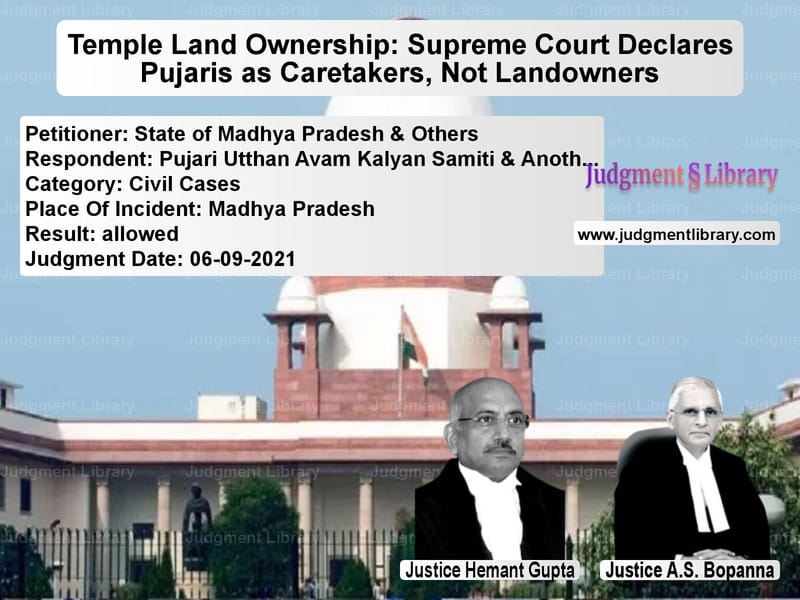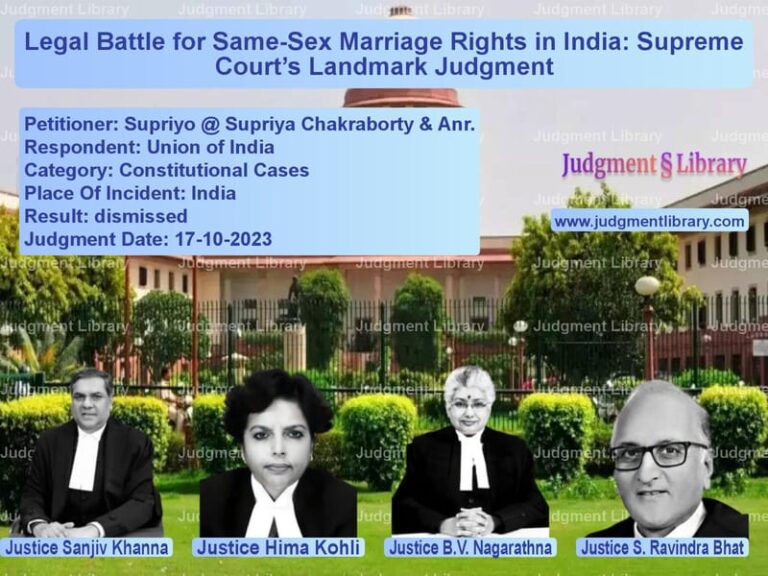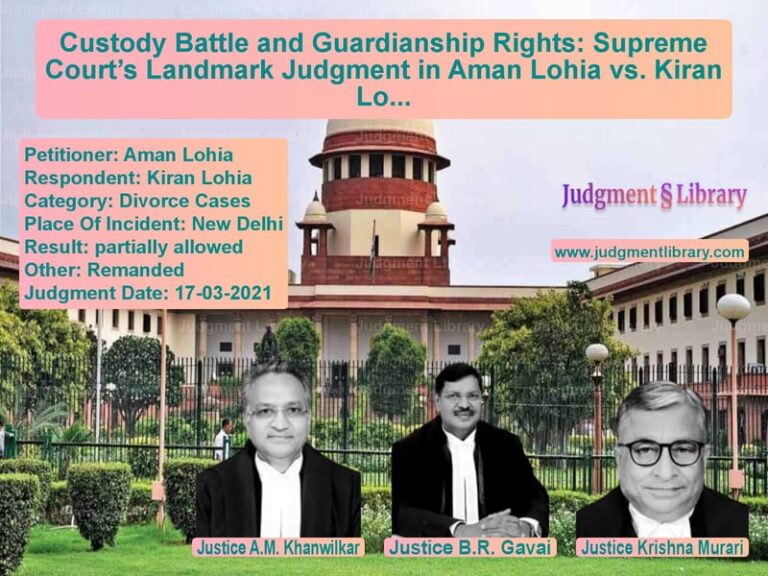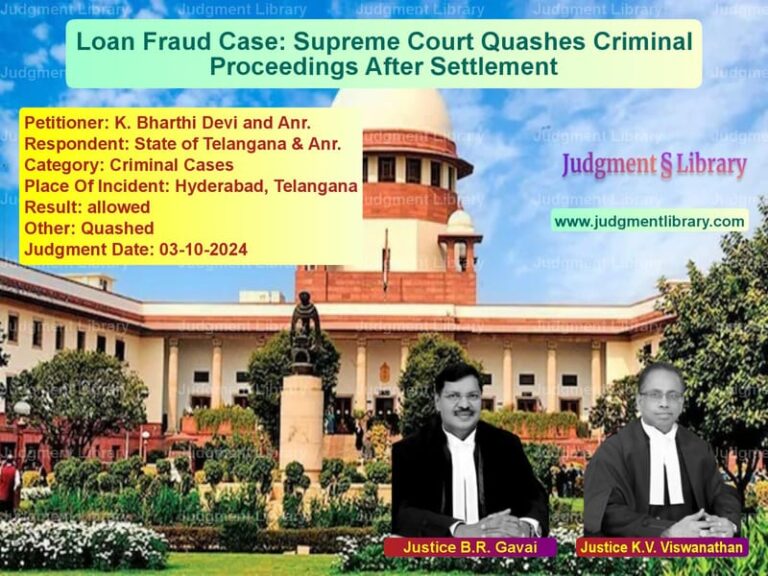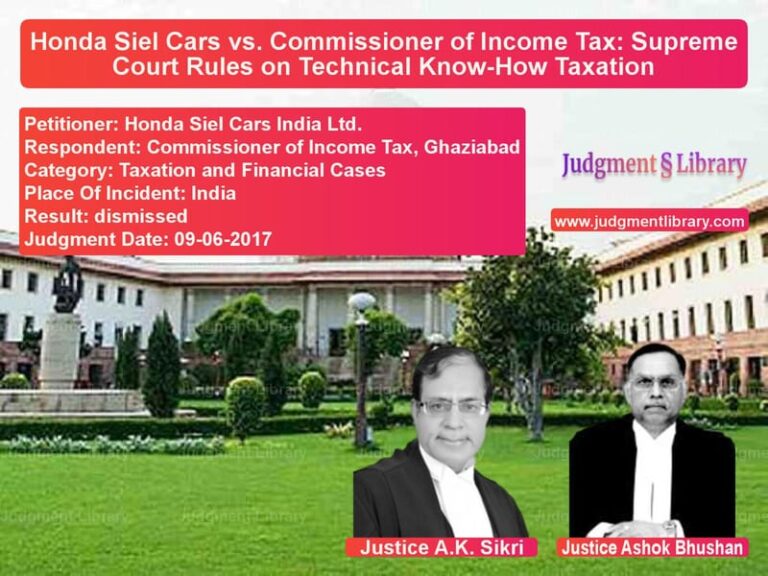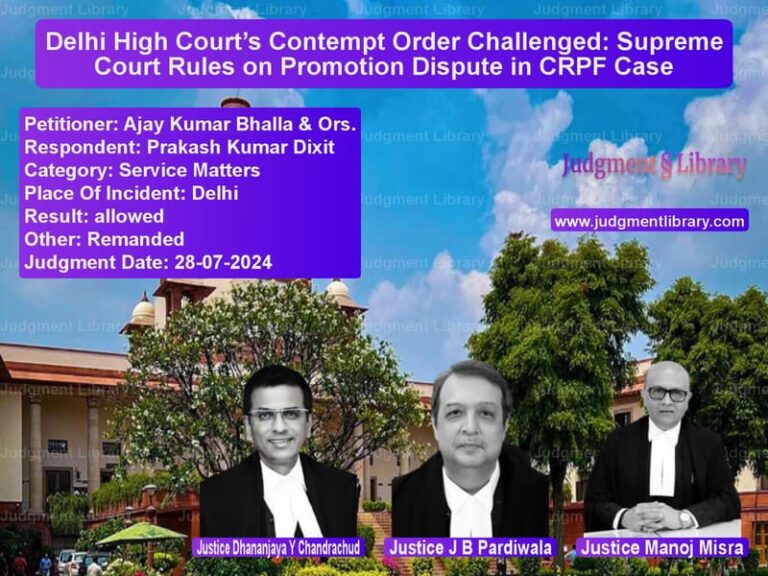Temple Land Ownership: Supreme Court Declares Pujaris as Caretakers, Not Landowners
The Supreme Court of India recently ruled on a landmark case concerning temple land rights in Madhya Pradesh. In State of Madhya Pradesh & Others vs. Pujari Utthan Avam Kalyan Samiti & Another, the Court settled a long-standing dispute regarding whether Pujaris (priests) could claim ownership over temple land. The judgment upheld government circulars that removed the names of Pujaris from revenue records and reaffirmed that temple land belongs to the deity and not to the Pujaris.
The case involved multiple appeals challenging the Madhya Pradesh government’s decisions regarding the management and ownership of temple land. The dispute stemmed from executive instructions issued in 1994 and 2008, which directed that Pujaris’ names should not be recorded as landowners in revenue records. The Madhya Pradesh High Court had earlier ruled in favor of the Pujaris, but the Supreme Court overturned that decision, emphasizing that Pujaris are only caretakers and have no ownership rights.
Background of the Case
The controversy began when the Madhya Pradesh government issued two key circulars:
- Circular dated 21.03.1994: This order stated that the names of Pujaris should not be recorded in any revenue records and that land belonging to temples should be registered in the name of the deity.
- Circular dated 07.06.2008: This directive reaffirmed the 1994 order and instructed the Revenue Commissioner to ensure compliance.
These circulars aimed to prevent the unauthorized sale and mismanagement of temple land. However, Pujaris challenged the orders, arguing that they had inherited rights over temple land and were entitled to be recognized as owners under the revenue system.
Arguments by the Appellant (State of Madhya Pradesh)
- The government argued that temple land belongs to the deity, which is considered a juristic person under Indian law.
- Pujaris are merely managers or caretakers of temple land and do not have ownership rights.
- Past complaints indicated that Pujaris were selling or transferring temple land illegally, leading to the issuance of government orders.
- Under the Madhya Pradesh Land Revenue Code, the state government has the authority to regulate land records to prevent unauthorized transactions.
- The government cited various legal precedents that emphasized that Pujaris cannot claim hereditary ownership over temple land.
Arguments by the Respondents (Pujaris)
- The Pujaris contended that they had been granted Bhumiswami (ownership) rights under the Madhya Bharat Land Revenue and Tenancy Act, 1950.
- They argued that executive orders could not override statutory rights that had been granted to them.
- The respondents relied on past judgments, including Shri Krishna v. State of M.P., which had recognized Pujaris as Bhumiswamis.
- They asserted that their families had been cultivating temple land for generations and that they had de facto ownership.
Supreme Court’s Key Observations
- The Court reaffirmed that a deity is a legal entity and the rightful owner of temple land.
- It ruled that Pujaris, while responsible for managing religious services and temple properties, cannot claim ownership.
- The government’s decision to remove Pujaris’ names from land records was held to be legally valid.
- Judgments cited by the respondents, including Shri Krishna v. State of M.P., were deemed incorrect and inconsistent with established legal principles.
- The Court highlighted that allowing Pujaris to claim ownership could lead to widespread mismanagement and sale of temple land.
Legal Precedents Cited
The Supreme Court relied on several past judgments to support its ruling:
- Mst Kanchaniya v. Shiv Ram & Others (1992 SC 1239): This case held that Pujaris do not have absolute rights over temple land and function only as managers.
- Pancham Singh v. Ramkishandas Guru Ramdas: The Court ruled that Pujaris could not alienate temple property and that ownership remained with the deity.
- Deoki Nandan v. Murlidhar & Ors.: This decision clarified the distinction between public and private temples and reaffirmed that temple land belongs to the deity.
Final Verdict and Order
- The Supreme Court allowed the appeal and set aside the Madhya Pradesh High Court’s ruling.
- It upheld the government’s 1994 and 2008 circulars, confirming that temple land should be recorded in the name of the deity.
- Pujaris’ names can only be recorded in the remarks column of revenue records and not in the ownership column.
- The judgment clarified that government authorities have the power to regulate temple land management to prevent misuse.
This ruling establishes a legal precedent ensuring that temple land remains protected and that Pujaris cannot claim ownership. The decision safeguards religious properties from unauthorized transfers and ensures that they remain dedicated to their intended purpose.
Petitioner Name: State of Madhya Pradesh & Others.Respondent Name: Pujari Utthan Avam Kalyan Samiti & Another.Judgment By: Justice Hemant Gupta, Justice A.S. Bopanna.Place Of Incident: Madhya Pradesh.Judgment Date: 06-09-2021.
Don’t miss out on the full details! Download the complete judgment in PDF format below and gain valuable insights instantly!
Download Judgment: state-of-madhya-prad-vs-pujari-utthan-avam-k-supreme-court-of-india-judgment-dated-06-09-2021.pdf
Directly Download Judgment: Directly download this Judgment
See all petitions in Property Disputes
See all petitions in Landlord-Tenant Disputes
See all petitions in Judgment by Hemant Gupta
See all petitions in Judgment by A. S. Bopanna
See all petitions in allowed
See all petitions in supreme court of India judgments September 2021
See all petitions in 2021 judgments
See all posts in Civil Cases Category
See all allowed petitions in Civil Cases Category
See all Dismissed petitions in Civil Cases Category
See all partially allowed petitions in Civil Cases Category

